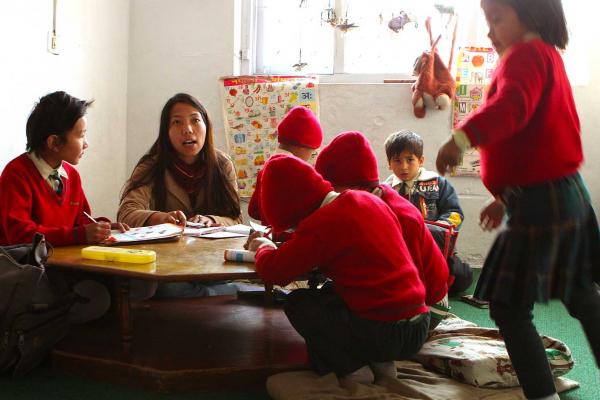There are certain foods that are synonymous with certain cultures. When thinking of French culture, thoughts of wine and cheese come to mind; for Canada, maple syrup and poutine; and for Japan, sushi and sashimi. Many people enjoy various aspects of all cultures, even going as far as developing a passion for them that encourages them to study those things in depth and build collections of them.
It is the same when thinking about Colombia. Usually, the first thought is coffee—and for good reason. Coffee is Colombia’s third biggest export, and it is an integral part of the culture, especially in the coffee region. There are many fincas (farms) that grow coffee and provide coffee tours. There are seminars and courses dedicated to the study of coffee.
The Spanish immersion course that I enrolled in included a cultural component each week. The third week of the course was a coffee tasting. During the coffee tasting, the teacher discussed the difference between good and bad coffee; who typically serves bad coffee (consider major chains); how to spot a good bean; and how to brew the perfect cup of coffee. It was an eye-opener for me because I always assumed that the premium chains would be serving good coffee, when in actual fact they generally are not. I learned that as a general rule, if the coffee is produced for mass consumption it’s usually not the best coffee.
The best coffee tends to be what is exported, leaving the lesser quality coffee in Colombia.
What I also learned is that even here in Colombia, there is bad coffee that the locals are consuming. Another misconception that I had was that the best coffee would be here—in the coffee region—but that is not usually the case. The “tinto” that Colombians drink is very bad coffee and is so readily available that people sell it on the street with their coffee carts. This is because the best coffee tends to be what is exported, leaving the lesser quality coffee in Colombia.
But things are changing. There are places that sell good quality coffee in Colombia and there are many locals that are becoming aware of it and choosing to drink better than tinto coffee. The coffee tasting—which led me to take a two-day coffee seminar at the university—taught me that good coffee should light and smooth and not require milk and sugar. (Of course, milk and sugar are a preference for some, but the idea is that if it is good quality coffee it doesn’t need either.) Oh, and this particular talk about coffee doesn’t include specialty coffees such as cappuccino or lattes.
It’s been an enriching experience to learn more about Colombian culture in this manner, and I’ve begun to develop an appreciation for coffee that I didn’t have prior to arriving in Colombia. So armed with this newly learned knowledge, and with the help of the coffee experts I’ve met, there are three coffee shops in Armenia that I like to visit when I’m want to enjoy a good cup of java:
1. Wanderlust Café: This is the place that I frequent the most, to the point where the serving staff ask if I’ll have my usual. They have a variety of coffee-based beverages to offer including my favourite, the cappuccino with arequipe.
2. Avena & Miel: This gluten-free café serves are variety of coffee beverages as well as oat-based food products. My favourite order at this spot is the latte with the gluten-free chocolate brownie.
3. La Casa Del Café: When I’m craving a simple eggs and toast with a café con leche, this is where I go. The large spacious layout is really comfortable, and I like that the server who is usually there when I arrive remembers my order.
Add this article to your reading list




